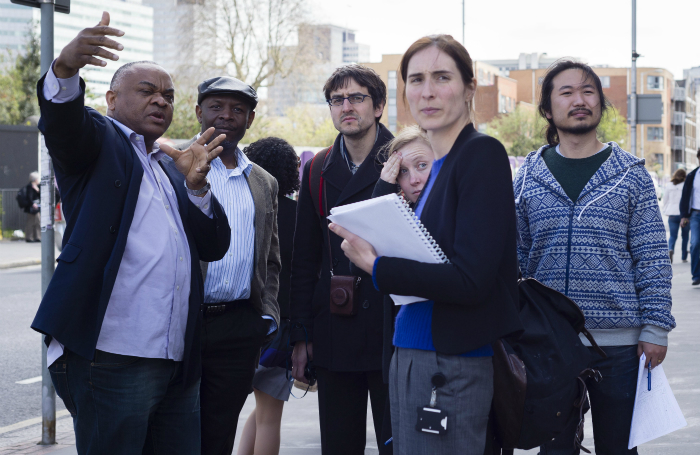This week saw the launch of Public Practice, a social enterprise aiming to recruit a new generation of place-making planners for local authorities, beginning with London and the South East.
Developed through the Mayor of London’s ‘Good Growth by Design’ programme it counts the Mayor, the Local Government Association and developers British Land, Berkeley Group and housing association Peabody among its founding partners.
Chief executive and moving force, Finn Williams, explains that the scheme aims to place outstanding candidates from architecture, planning and urban design, offering them an alternative career path focused on shaping places for the public good. The scheme has also set itself the ambition of changing perceptions of planning and what it can achieve at a time when the profession seems to be at a low ebb.
Recruitment of the first cohort of 16 ‘Associates’ got under way this week. Public Practice will act as broker, placing successful candidates on one-year fixed-term contracts in participating local authorities, with secondments from large private sector practices encouraged.
Williams himself started out as an architect at the Office of Metropolitan Architecture (OMA) before making the switch to planning, first at Croydon Council and then the Greater London Authority.
‘Public Practice is the sort of organisation I wish had been around when I made my move, one that can create the right conditions for real placeshaping,’ says Williams, now a CABE Built Environment Enabler and member of the RIBA’s Planning Group.

As a placement programme, the model will give Associates place-based strategic and creative roles to deliver change on the ground, while receiving training and mentoring from leading practitioners. Once installed, the place-makers will spend 10% of their employment time on collective research, taking it in turns to host meetings and discussions with the other pioneers.
The aim is turn the collective research into best practice guidance to make the experience and intelligence gathered widely available.
Finn has no doubt that the demand is there, particularly among the more enterprising local authorities, having spoken to dozens of planning departments about the scheme.
‘We’ve done quite a lot of research and there has been a definite shift in resourcing over the last two years. Then it was simply a lack of funding, now the problem is filling vacancies,’ explains Williams.
Almost all (96%) of London boroughs say they need more planning and place-shaping skills, while all say they have difficulty attracting appropriately qualified or skilled practitioners. Meanwhile 91% of boroughs are forced to use expensive agency staff or external consultants to fill the gaps.
Williams thinks that Public Practice should be able to cut these agency costs in half while attracting a higher quality of candidates for the work.
While the initial coverage of Public Practice will be London and the South East, the hope is that the initiative will be scaled up nationally over time.
Commenting on the launch this week, Berkeley Group chairman Tony Pidgley said it was time to champion planning: ‘In my experience, the real challenge is not about policy but getting the culture of planning right and having the capacity and confidence to work in partnership across the public and private sectors. That’s what Public Practice can help us achieve.’
Applications are being invited from potential Associates who may be planners, architects, urban designers, landscape architects, regeneration or historic environment experts – or practitioners with different backgrounds, from data science to social sciences. They will be asked to make a 12-month commitment to Public Practice from 1 April 2018.
Associates will typically be expected to have a minimum of three years’ experience in practice, and will receive a salary of £30,000-£50,000 from their host authority.
The deadline for applications for the first cohort of Associates is 10 December 2017. More information is given in the prospectus, with more detailed information on how to apply to be published on 13 November.
Thanks to Finn Williams, Chief Executive Officer, Public Practice.
Text by Neal Morris. This is a ‘Practice News’ post edited by the RIBA Practice team. The team would like to hear your feedback and ideas for Practice News: practice@riba.org.
Posted on 8 November 2017.









